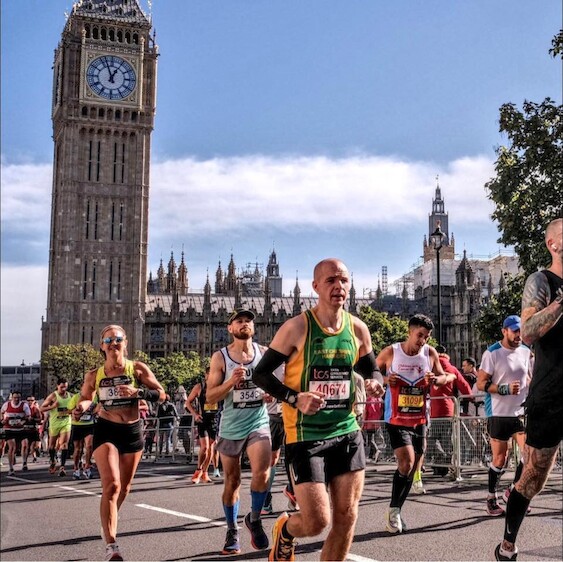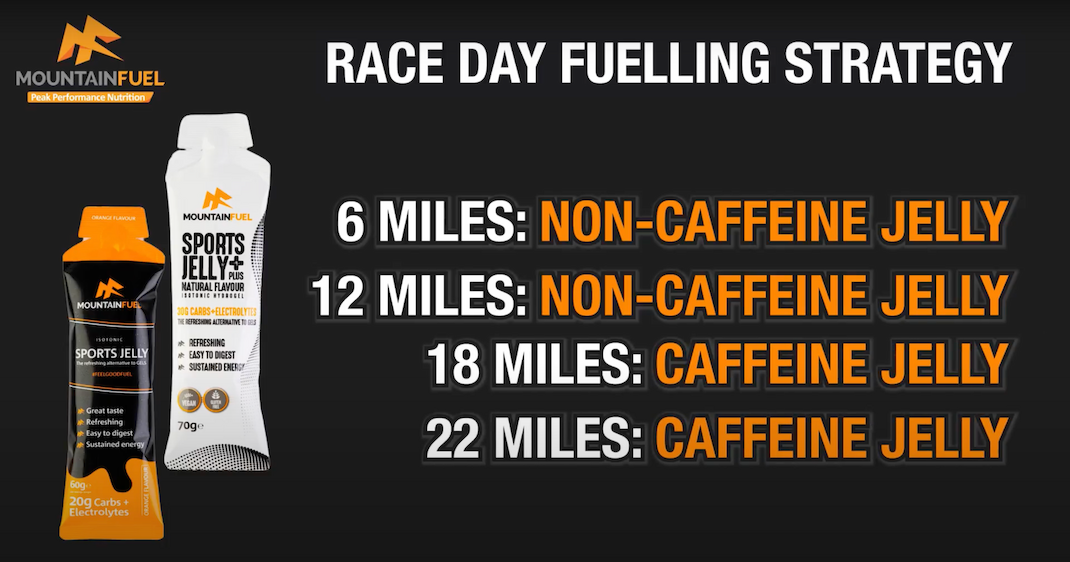Fuelling for Marathons: Nutrition Insights from Callum Parkinson
Marathon running is a journey of human endurance and the triumph of willpower over physical limits. Yet, behind every successful run lies a well-crafted strategy, especially when it comes to nutrition and fuelling.
In this two-part series, Rupert Bonington from Mountain Fuel Sports Nutrition delves into the intricacies of marathon fuelling with experienced marathon runner Callum Parkinson, who recently achieved a personal best (PB) at the London Marathon. This blog captures key insights from their conversation, offering invaluable advice for runners at all levels.
The Early Days: Learning the Hard Way

Callum Parkinson's running journey began in 2012, initially as a means to get fit for his wedding. His first marathon in Manchester in 2016 was a learning curve. He recalls using sports chews for the first time without adequate training. By mile 20, he was depleted, resorting to jelly babies and whatever food was available along the route. This experience underscored a critical lesson: practice with your race-day nutrition in training.
Evolution of Nutrition Strategy
Callum’s approach to nutrition has evolved significantly over the years. Initially, he didn’t pay much attention to what he ate, relying on the heavy mileage to balance his diet. Over time, influenced by discussions on the Local Runners podcast and advice from experienced runners, he adopted a more structured nutritional plan.
One pivotal change (apart from discovering Mountain Fuel 4 years ago) was understanding the importance of nutrition during the taper period. In the final two weeks before a race, Callum focused on a balanced diet, incorporating a carb depletion phase followed by gradual carb loading. This strategy ensured his body was well-prepared without the burden of last-minute carb overload.
Race-Day Routine
On the morning of the marathon, have a high-energy, easy-to-digest, slow-burn breakfast, Mountain Fuel’s Morning Fuel is perfect for this and allows plenty of time for digestion. Being consistent with this will help avoid digestive issues and ensure energy levels are optimised.
A key takeaway from Callum’s experience is the importance of pre-race fuelling. Although he planned to take a sports jelly 15 minutes before the start, he forgot to pack an extra one. This oversight highlighted the need for meticulous preparation, including packing all necessary nutrition.
During the Race: Sticking to the Plan

Callum’s in-race fuelling strategy involved taking non-caffeinated jelly at miles 6 and 12, followed by caffeinated sports jelly at miles 18 and 22. However, even the best-laid plans can falter. He missed his jelly at mile 22, which he believes could have contributed to the struggle he faced in the final miles.
Rupert emphasised the potential benefit of taking a sports jelly 15 minutes before the race, especially given the long wait times and early start. Practicing this strategy in training could help mitigate any digestive issues and ensure the body is primed for the initial burst of effort.
Post-Race Recovery
Post-race recovery is crucial, and Callum typically relies on a recovery powder after races and intense sessions. However, the logistical challenges of race day sometimes disrupt this routine. Despite these challenges, he underscores the importance of rehydration and replenishment immediately after crossing the finish line.
Advice for New Marathoners
Reflecting on his journey, Callum offers several pieces of advice for aspiring marathoners:
Practice Your Nutrition: Use your long training runs to test and refine your fuelling strategy. This practice helps avoid unpleasant surprises on race day.
Monitor Your Diet: Maintaining a balanced diet throughout your training block is essential. Avoid the temptation to eat junk food simply because you’re burning more calories.
Stay Consistent: Develop a pre-race routine that works for you and stick to it. Consistency helps reduce race-day anxiety and ensures your body knows what to expect.
Callum’s experiences underline a fundamental truth about marathon running: success is built not just on the miles you run, but on how well you fuel those miles. Whether you’re a novice runner or a seasoned marathoner, paying attention to your nutrition can make the difference between hitting the wall and hitting your goals.
Marathon running is as much about strategy as it is about stamina. Through careful planning and consistent practice, runners can optimise their performance and enjoy the journey from start to finish. Callum Parkinson’s story is a testament to the power of proper fuelling and the wisdom gained through experience. For anyone looking to conquer the marathon, his advice is simple but profound: prepare well, practice consistently, and never underestimate the importance of nutrition.
See our in-depth marathon fueling plan here.
Want to try the jellies that helped Callum get his PB?
Try our taster pack here or get our complete taster pack which includes
everything Callum used and more to get his PB.
